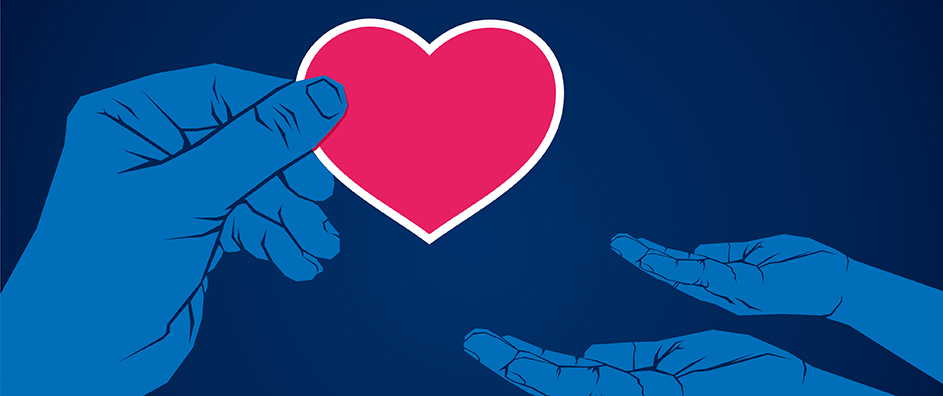The tapestry of spiritual teachings woven by the Bahá’í Faith encompasses a profound commitment to kindness, an imperative that calls individuals not only to serve themselves but to uplift humanity as a collective. Among these teachings is the principle of “Extreme Kindness,” a concept that promises to transcend the mundane interactions of daily life, inspiring adherents to engage with the world in a manner that is always constructive and compassionate.
To appreciate the essence of Extreme Kindness, one must delve into the foundational philosophical assertions of the Bahá’í Faith. These tenets assert the inherent oneness of humanity, emphasizing that individuals are interconnected in a universe fashioned by divine providence. Thus, the practice of kindness is not merely a suggestion; it is a fundamental obligation that reflects a righteous spirit. This holistic approach nurtures the belief that each act of kindness, regardless of its scale, can catalyze transformative developments in society.
First and foremost, Extreme Kindness invites individuals to adopt a paradigm shift in their perspectives toward everyday life. Often, societal interactions can be riddled with animosity and suspicion. However, by consciously choosing to embody kindness, adherents are encouraged to dismantle these barriers. Therefore, the act of kindness becomes not merely a spontaneous gesture but a deliberate choice rooted in a long-standing moral framework.
Moreover, the Bahá’í Faith emphasizes the notion of radical openness. This idea engenders curiosity, sparking a deep interest in understanding others’ experiences and backgrounds. By commingling with diverse individuals and communities, one learns to appreciate the multifaceted nature of existence. Engaging with others with Extreme Kindness facilitates a richer, more nuanced world view. It engenders empathy, urging individuals to confront their preconceived notions and cultural biases. Such encounters with dissimilar perspectives are invaluable; they expand one’s capacity for understanding and, in turn, foster a more inclusive society.
Additionally, Extreme Kindness functions as an antidote to the prevalent indifference often observed in contemporary cultures. The pervasive hustle and bustle can create a dissonance that distances people from one another. An intentional commitment to kindness acts as a countermeasure to this disconnection, propelling individuals toward authentic relationships. When people choose to engage wholeheartedly, the impact is palpable—it reverberates within families, communities, and ultimately, the world at large.
Furthermore, the Bahá’í teachings position kindness as an essential tool for conflict resolution. In an age characterized by division and hostility, it becomes paramount to cultivate an ethos of understanding. The practice of Extreme Kindness encourages individuals to approach disputes with the intent to heal rather than harm. This means refusing to respond to anger with anger, and instead opting for compassion. In environments where communication is fraught with tension, embodying kindness opens pathways to dialogue and reconciliation—a crucial aspect of societal cohesion.
The practice extends beyond mere interaction; it enfolds the very fabric of personal conduct. When one actively chooses to practice kindness, it fosters a virtuous cycle. Acts of kindness generate joy—not merely for the recipient, but for the giver as well. This reciprocal dynamic cultivates a culture of optimism and generosity, which permeates every layer of society. As this ethos proliferates, it instigates a ripple effect, prompting further acts of kindness within the community.
Moreover, the efficacy of Extreme Kindness can also be found in its ability to mitigate disenfranchisement. Societal inequities often breed despair and disconnection. By adopting an attitude of kindness, individuals can contribute positively to the lives of those who are marginalized. Acts of kindness performed with intent can serve to uplift communities, offering support and reinforcing the idea that every single person has intrinsic value. This recognition of worth is an inexorable aspect of the Bahá’í teachings, demonstrating that kindness is, in essence, an acknowledgment of our shared humanity.
In addition to nurturing interpersonal connections, Extreme Kindness can greatly enhance one’s own emotional and psychological well-being. Scientific research supports the notion that altruistic behavior can lead to increased happiness and fulfillment. This concept is not merely anecdotal; kindness is a practice that profoundly positively affects one’s mental health. The steady commitment to acts of kindness encourages self-reflection, personal growth, and resilience. Through these transformative experiences, individuals find themselves better equipped to face the vicissitudes of life with a fortified spirit.
The empirical evidence of kindness as a transformative force is evident across cultures and civilizations. Notably, this principle does not exist in a vacuum; it necessitates action and intention. By operationalizing kindness, individuals propel the collective towards higher ideals—peace, unity, and ultimately, love. The Bahá’í teachings assert that the world can be a better place, provided humanity recognizes its intertwined destinies and acts accordingly. The call for Extreme Kindness thus becomes a beacon, illuminating a path toward greater understanding and interdependence.
In summation, the ethos of Extreme Kindness, as inspired by the Bahá’í teachings, urges individuals to forge a profound connection with the world around them. By embodying compassion, curiosity, and a commitment to collective welfare, adherents can contribute to a monumental shift in societal dynamics. In a landscape often marred by division, the deliberate practice of kindness is a radical and transformative act—one that speaks to the heart of our shared humanity. The process of choosing kindness fosters hope, strengthening communities and cultivating an atmosphere ripe for healing and growth. Ultimately, that is the enduring promise of Extreme Kindness.
